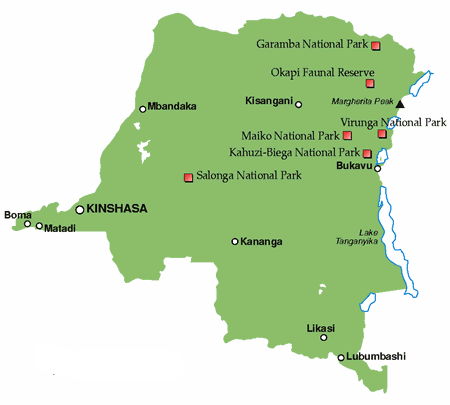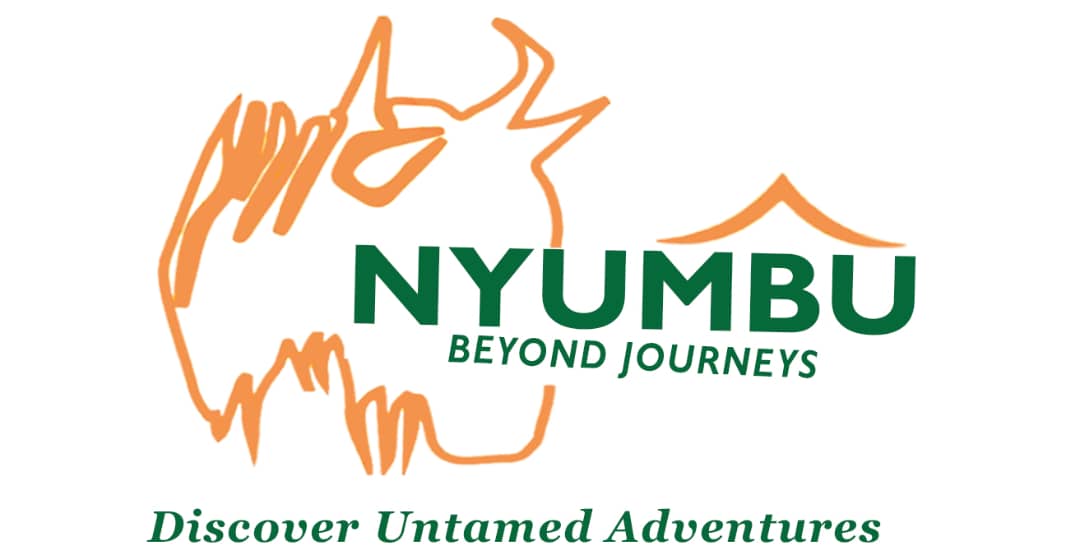About
We pride ourselves on our passion for East Africa, her animals, wild spaces and Culture, amazing people.

© Copyright 2025 Nyumbu Beyond Journeys. All Rights Reserved
The Democratic Republic of Congo (DRC), Africa’s second-largest country, is a captivating and diverse destination at the heart of the continent. Bordered by nine nations, the DRC’s rich and complex history spans from the colonial era under Belgium’s King Leopold II to the more recent period of Mobutu Sese Seko’s dictatorship. However, the country is now experiencing relative stability, opening its doors to travelers eager to explore its natural wonders.
From misty jungles teeming with mountain gorillas to pristine lakes surrounded by active volcanoes, the DRC offers an unparalleled adventure. Its vibrant urban centers, home to Africa’s most dynamic music scene, further enhance the allure of this unforgettable travel destination.Our DR.Congo unique hand-crafted journeys are more than the adventure rhythm but following the footsteps of the Gorilla conservationist Dani Fossey work in the Virunga Massif to tracking lowland Gorillas in Kahuzi Beige National Park is a life changing experience

Located in the heart of Africa, The Democratic Republic of Congo is the second biggest country and arguably most beautiful in Africa, with Virunga as its jewel; home to Virunga National Park, an incredible destination that very few tourists have seen.
A destination for pioneering travellers, the Democratic Republic of Congo (DRC), offers something truly remarkable for the avid explorer. A complicated region with a huge amount to offer, exploring the eastern edge offers explorers a real-life glimpse into the heart of Africa. The DRC is a complex but rewarding destination; a pocket of biodiversity, home to about a quarter of the world’s remaining
Volcano Hiking
Explore the Virunga National Park’s volcanoes, Nyiragongo and Nyamuragira, and see the largest lava lake in the world at Nyiragongo’s summit.
Congo River Adventure
Take a boat ride along Africa’s second-longest river, the Congo, to learn about the culture of the region and see the wildlife that lives along the banks.
Visit Kinshasa
Discover Kinshasa, the capital city, where you can browse marketplaces, see art galleries, and take in the thriving dance and music scene.
Lwiro Primate Rehabilitation Center
Support conservation efforts by going to this refuge close to Bukavu to view and learn about rescued primates like chimpanzees and bonobos.
Zongo Falls
Discover the Zongo Falls, a stunning natural site close to Kinshasa that features a succession of flowing waterfalls surrounded by thick forest.
Mangroves of Garamba
Take a guided boat tour through the mangroves
Generally, the best time to visit the DRC is from May to September – the dry season – with July as the driest month. Although gorilla permits are half the price in the “low” wet season, trekking can be treacherous due to the heavy rains. The line of the equator runs straight through the Democratic Republic of Congo so temperatures vary little throughout the year, only fluctuating by a few degrees. Two dry seasons occur annually, the first between January and February and the second between June and September. The rainy seasons occur in the intervening months: March-May and October-December. The consistent temperatures, the DRC is a viable destination for travellers at any time of the year and there are benefits to travelling in either season. Despite the predictability of the climate, embarking on a safari to Virunga is not a guarantee of sunshine and blue skies as DRC is generally overcast and there can be a high frequency of thunderstorms. Stretching across 3,000 square miles and reaching altitudes of 16,000 ft, this mountainous region often requires cold-weather preparation. The highest of the Rwenzori Mountains in the north are permanently snow-capped, while a hike up Mount Nyiragongo – an active volcano – will take you past 11,000 ft. Savannah sits alongside alpine forest in this wonderfully diverse jewel at the heart of Africa.
January to February and June to September – Dry Season
You are less at risk of intense and prolonged downpours than travelling in the rainy season but keep in mind that rain is still likely to fall occasionally; tropical rainforest is just one of the many landscapes and ecosystems present within Virunga’s borders. Tracking down mountain gorillas, an indisputable highlight of a trip to the DRC, can potentially take longer than during the rainy season. The drier months drive the gorillas to higher altitudes, requiring longer climbs. But with firmer ground underfoot, you’ll not have to contend with too much slipping and sliding. Gorilla permits are pricier during the dry ‘high’ season, costing $400 per permit and are always on high demand, compared to low demand in the wetter months.
March to May and October to December – Wet Season
Making the choice to endure regular rainfall has its benefits; permits are half the price and Virunga’s mountain gorillas tend to forage at lower altitudes and range shorter distances for food during the rainy season. Cold, overcast weather also encourages the groups to stay in their nests in the morning, reducing the amount of tracking needed to locate them. Despite being less physically demanding, wet weather can make for treacherous trekking as the ground becomes increasingly sodden with water. After a rainstorm passes, beautifully clear views can provide the perfect opportunity for crystal-clear photography.
Gorilla trekking in the Democratic Republic of Congo (DRC) does come with certain safety considerations due to the country’s complex political and security situation. The eastern part of the DRC, where gorilla trekking usually takes place (particularly in Virunga National Park), has experienced various challenges, including armed conflict and instability.
While gorilla trekking can offer an incredible and unique experience, it’s important to prioritise safety and be well-informed before considering such a trip. It’s recommended to stay updated on travel advisories from your government, consult with reputable tour operators who have experience in the region, and follow the advice of local authorities and guides during the trek.
Keep in mind that the security situation in the DRC can change, and it’s advisable to have a flexible travel plan and be prepared for unexpected changes. If you are considering gorilla trekking in the DRC, it’s essential to conduct thorough research, assess the current situation, and make an informed decision based on safety considerations
The currency of the Democratic Republic of Congo (DRC) is the Congolese Franc, abbreviated as “CDF.” Please note that exchange rates and currency information may vary, so it’s recommended to check with reliable sources or financial institutions for the most up-to-date information before your travel.
Most visitors to the Democratic Republic of Congo (DRC) require a visa to enter the country. The specific visa requirements can vary based on your nationality, purpose of visit, and the length of your stay. It’s
important to check with the nearest Congolese embassy or consulate in your country or visit their official website to get the most up-to-date and accurate information regarding visa requirements, application procedures, and any changes that may have occurred since my last update. It’s advisable to start the visa application process well in advance of your planned travel dates to ensure a smooth entry into the DRC
The Democratic Republic of Congo (DRC) is a linguistically diverse country with a wide variety of languages spoken. French is the official language and is used for government, administration, and education. Additionally, there are numerous indigenous languages spoken across different regions and ethnic groups. Some of the major indigenous languages in the DRC include Lingala, Swahili, Kikongo, Tshiluba, and Luba-Kasai, among others. The linguistic diversity reflects the country’s rich cultural heritage and the presence of various ethnic communities.
We pride ourselves on our passion for East Africa, her animals, wild spaces and Culture, amazing people.

© Copyright 2025 Nyumbu Beyond Journeys. All Rights Reserved
